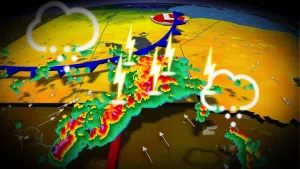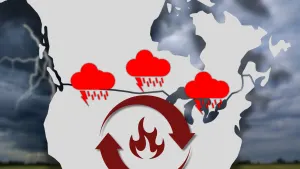
Risk of fatal heart attack increases on extreme weather, high pollution days
Experts say people can mitigate the risk by being aware of the weather forecast and dressing for the conditions.
Researchers have linked extreme weather conditions, high pollution, and heart attack deaths. The study, documented in the American Heart Association's journal Circulation, looks at more than 200,000 heart attack fatalities in a single Chinese province between 2015 and 2020.
Days characterized by extreme heat, extreme cold, or high levels of fine particulate matter (PM2.5) air pollution were associated with an increased incidence of death from heart attacks, in some cases more than doubling the risk.
This appears to be greatest on days with extreme heat and high levels of PM2.5 pollution.
Researchers focused on Jiangsu province, a region with distinct seasons and various temperatures and pollution levels. The study focused on older adults with an average age of 77.6.
Other key findings
Researchers also found:
An 18 per cent increase in heart attack death risk during 2-day heat waves with high heat indexes. The risk increased alongside heat wave temperature and duration, jumping to a 74 per cent increase on 4-day heat events when the faily temperature exceede 35 degrees Celsius.
A 4 per cent rise in risk during 2-day cold snaps with low temperatures. Risk also increased in conjunction with temperature and duration.
Twice the risk during 4-day heat waves with fine particulate pollution above 37.5 micrograms per cubic meter.
Women are at an elevated risk of suffering a fatal heart attack during a heat event compared to men.
People of all genders aged 80 and older are at greater risk compared to younger adults during extreme temperature events.
Additional research is required to determine how extreme temperatures interact with PM2.5 to trigger a heart attack.
The study's authors say individuals can mitigate the risk of a heart attack during extreme weather events by:
Monitoring the weather forecast and staying inside during extreme weather events.
Using fans and air conditioners to cool down in the heat.
Dressing appropriately for the weather conditions.
Staying hydrated.
Reducing strenuous outdoor activities on extreme weather days.
Installing window blinds to control indoor temperatures.
Using an air purifier indoors.
Wearing a mask outside on high pollution days.
VIDEO: The link between pollution and worsening mental health
Thumbnail image: File photo/Canva Pro.










